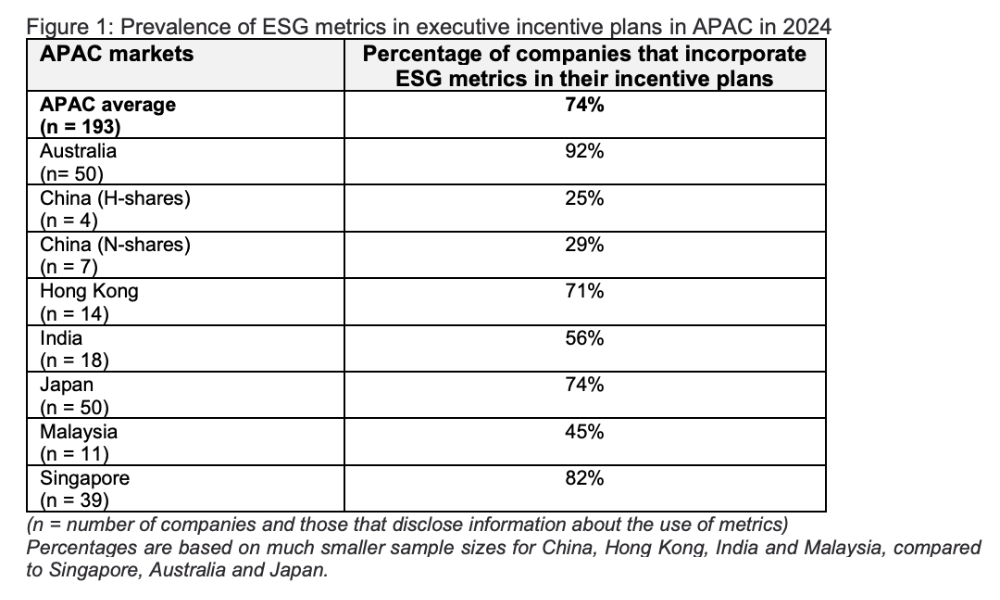
Disclosure, prevalence of ESG metrics in APAC companies continue to vary: report

Nearly three in four companies in the Asia-Pacific region have linked Environmental, Social, and Governance (ESG) measures in their executive incentive plans, according to a new report from WTW.
Out of 193 APAC companies that participated in WTW's latest global study, 74% said they are already incorporating ESG metrics in their incentive plans.
"The disclosure and prevalence of ESG metrics used by companies in APAC continue to vary and are influenced by the level of disclosure requirements and institutional investors' expectations in each market," said Shai Ganu, Managing Director and Global Practice Leader, Executive Compensation and Board Advisory, WTW, in a statement.

According to the report, social metrics remain the most popular ESG metrics category used globally, with 62% of APAC companies including it in their executive pay plans.
This is much higher than the 42% of companies that linked environmental metrics category, with only 30% incorporating GHG or carbon emission measures including Scope 3 emissions.
The findings come in the wake of growing pressure on organisations and governments to take steps in accelerating climate action amid rising heat that is putting employees at extreme risk.
"Leaders – and particularly G20 countries responsible for 80% of global emissions – must step up for climate action and climate justice," said António Guterres, United Nations Secretary-General, in a speech in 2023.
Meanwhile, ESG metrics have a high prevalence in the energy, materials, and financial services sectors in APAC, according to the report.
On the other hand, the highest proportion of ESG metrics linked to long-term incentive plans are found in the industrial sector.
"While markets such as Australia, Japan, and Singapore continue to have high prevalence of ESG measures in executive incentives, we haven't seen significant change over the past year," Ganu said.
The APAC region is also below the global average of 81% when it comes to the proportion of companies that incorporate ESG metrics in their incentive plans.
Despite this, only APAC recorded a two-percentage increase from 2023 compared with North America (77%) and Europe (94%), where there are no recorded changes in 2024.
"Going forward, geopolitical shifts may prompt slowdown in adoption of climate and DEI measures, particularly in North America," Ganu said.
The United States has been seeing a growing number of organisations that are altering their diversity, equity, and inclusion (DEI) efforts in the wake of conservative backlash and shifting legal landscapes surrounding such policies.
Major firms including Meta, Amazon, McDonald's, and Walmart, among others, have all announced that they will be making changes in their DEI practices and policies at work.
"Nevertheless, Asian companies will do well as they continue to drive the right behaviours by ensuring alignment between ESG strategy and executive incentives," Ganu said.